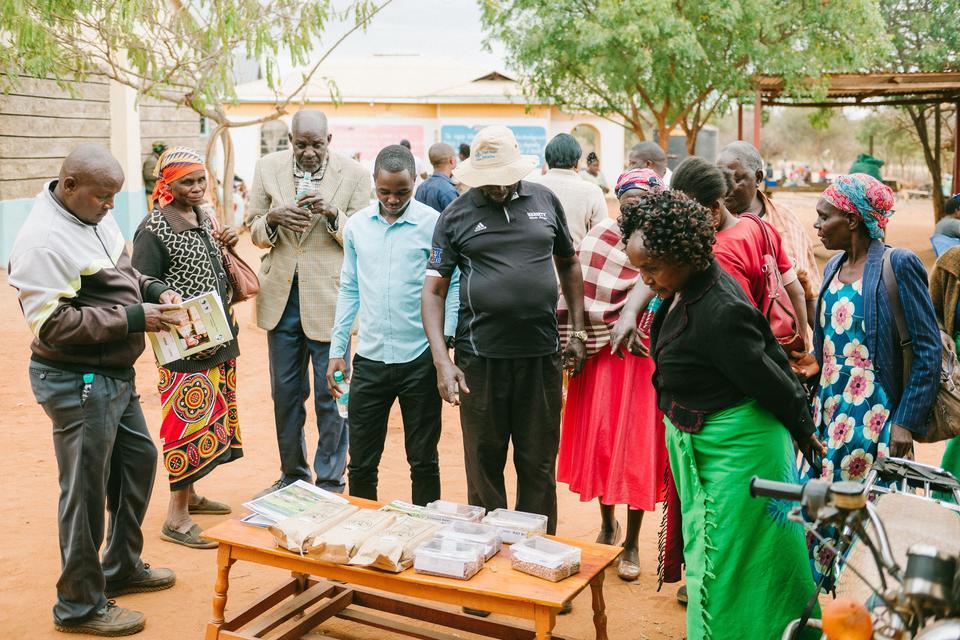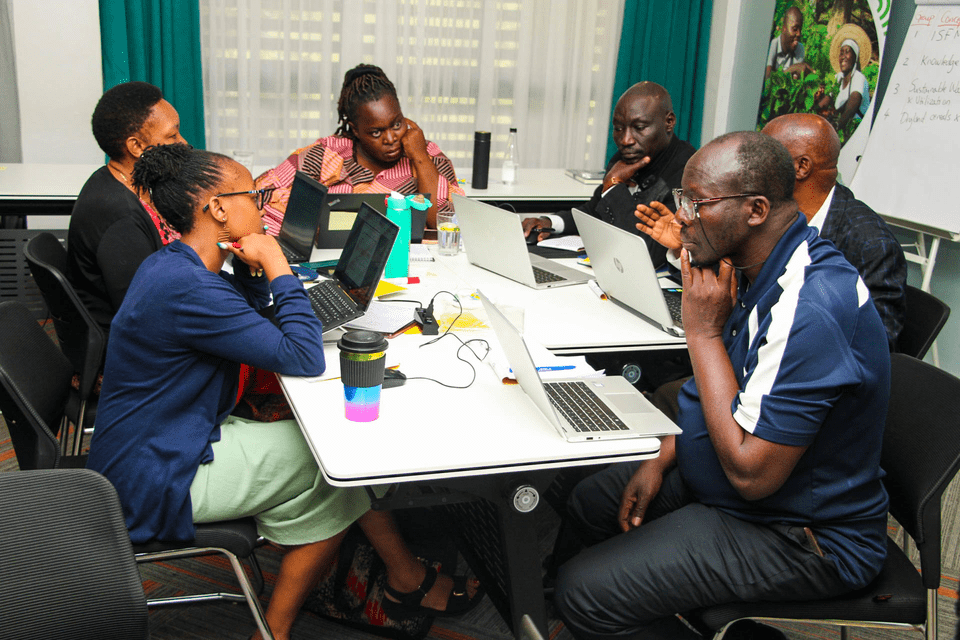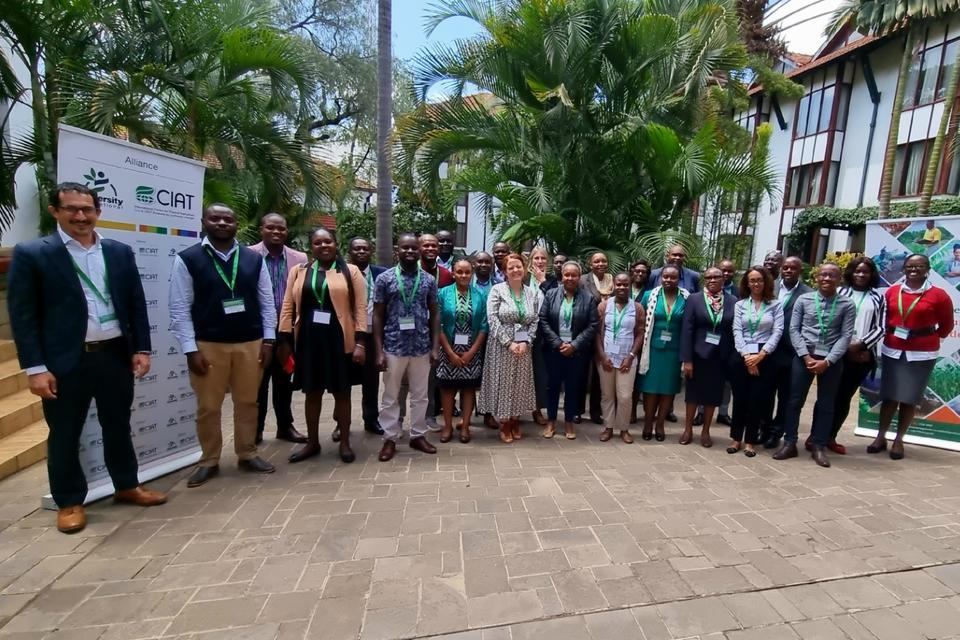From the Field Empowering Kenyan Counties to Unlock Climate Finance: A Capacity Building Approach
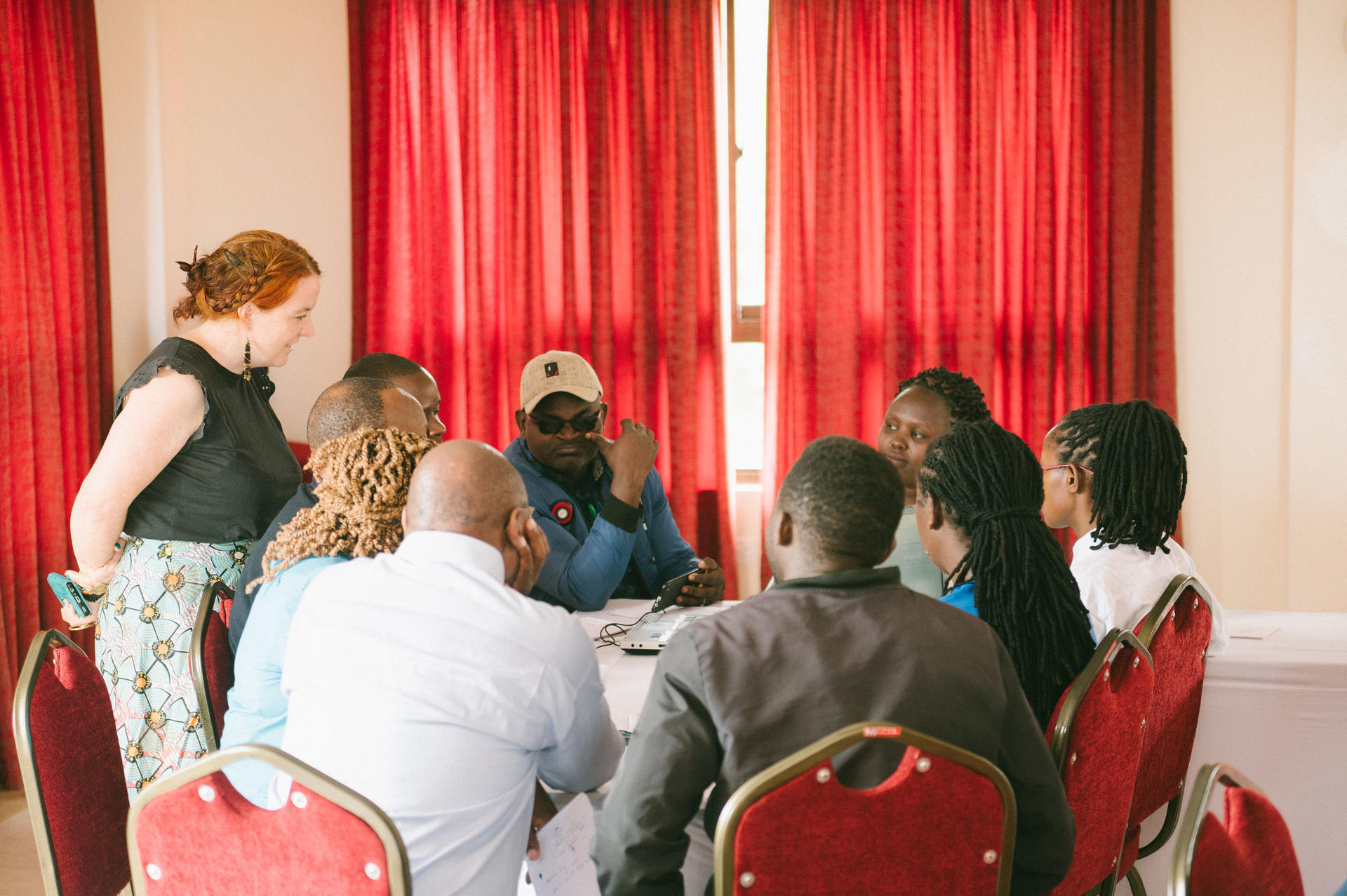
Climate change and variability have put most farmers on the verge of losing their livelihoods with the increasing climate shocks and risks. Embracing adaptation and mitigation measures could help farmers overcome climate change shocks and threats, but inadequate capacity is a major hurdle.
By Bwema Mogaka and Tessie Akoko
The ability to undertake inclusive and participatory investment planning to access climate finance for climate risk management and build resilience is weak. Thus, limiting the alignment of policies, identification of the main climate risks that threaten the agricultural sector, and capacity building of stakeholders to advance climate-smart agriculture investment planning initiatives.
The Accelerating Impacts of CGIAR Climate Research in Africa (AICCRA) project through the Alliance of Bioversity of International and CIAT organized county capacity-building training workshops – in Makueni County on 1st-3rd August, at Kilimani Breeze Hotel and in Siaya and Taita Taveta counties on 21st –23rd August 2023 at the Siaya County club and Panlis Resort, respectively. The training sessions focused on guiding participants to understand better the prioritization process for bankable investments in line with the Climate Smart Agriculture Investment Plan (CSAIP). Additionally, the session raised awareness and sensitivity to the Financing Locally Led Climate Action (FLLoCA) program and its requirements for accessing climate funds. This, in turn, will enhance the capacity to respond effectively to climate change challenges in the counties.
The objectives of the workshop included.
-
facilitating the participants to identify the primary climate risks affecting the agriculture sector and the prerequisites of climate risk management interventions.
-
strengthening the county stakeholder knowledge and skills required for inclusive and participatory investment planning.
-
enhancing the skills of county stakeholders in the development of bankable climate investment proposals to access climate finance.
-
sensitize the county stakeholders on the need to align county and community strategies and initiatives to the global and national climate change policy and legal frameworks.
The Alliance facilitated the capacity-building workshops with CSA-MSP led by Veronica Ndetu, Head of Climate Change Unit (CCU) – Ministry of Agriculture and Livestock Development (MOALD). The workshop included participants from diverse backgrounds and departments such as; academia, Civil Society Organisations (CSO), the Kenya Meteorological Department (KMD), private stakeholders, and other state departments. The training workshop incorporated a series of interactive presentations, plenary sessions, group workings, and discussions for the delivery of training modules and working group activities to the participants.
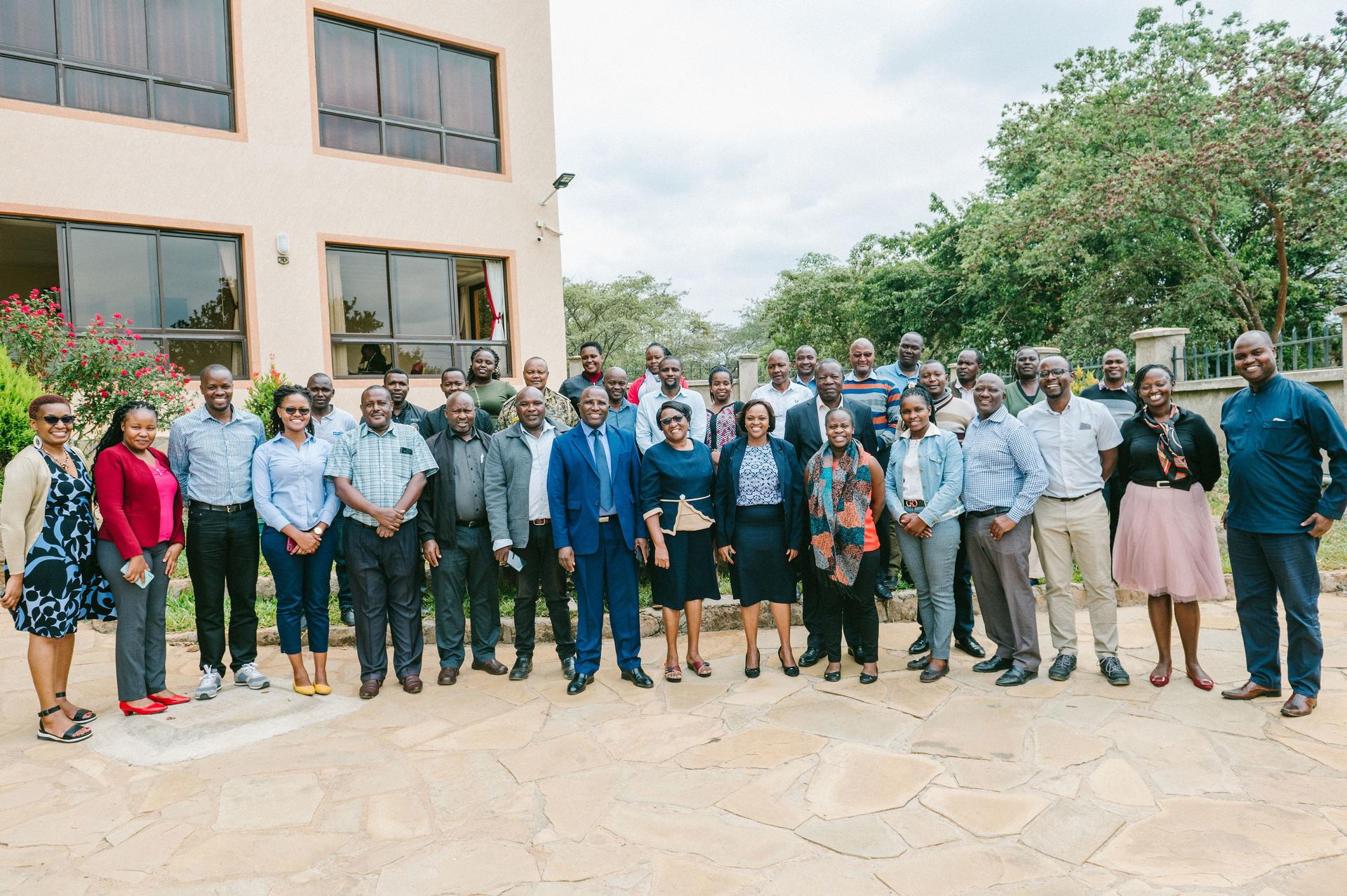
The capacity-building workshop participants. Credit: Alliance of Bioversity International & CIAT/Owen Kimani
In the context of localizing the CSAIP, the priority areas highlighted in Makueni county training workshop were improving water-harvesting structures for food security, strengthening extension services, and value chain development. Participants underscored the need for alignment in national and county policies pertaining local interventions to climate change. The workshop successfully provided valuable outcomes such as deeper understanding of climate risks and assessment, improved proposal development, policy alignment and increased knowledge on CSA and building resilience. The participants found the engagement and group discussions to be useful, and overall, the workshop met their expectations.
In Siaya County training workshop, the stakeholders prioritized sustainable land management and water conservation as the key investment opportunities. Participants acknowledged the need for mainstreaming climate risk management in investment planning to unlock climate finance and appealed for further training to domesticate the approach for optimal results. Implementing a training program on the development of bankable proposals at the ward level will be highly effective in enhancing local knowledge in proposal development. Key outcomes included an enhanced participant capacity to identify the primary and cascading climate risks, increased awareness of the importance of inclusivity and participatory investment planning, enhanced knowledge, and skills for developing CSAIP through holistic approaches, and improvement of skills through the emphasis on climate risk as part of the development of better bankable proposal.
In Taita Taveta County, prioritized CSA investments included soil conservation strategies, conservation agriculture and agroforestry. Participants stressed on the need for including practical approaches to catalyze the process. The workshop outcomes were; gained knowledge of different climate hazards, risks and the adaptation strategies, alignment of policies, key areas of alignment in their county, actions necessary for alignment, the role of County Development Integrated plan (CIDP) in mainstreaming climate action and if reporting climate actions is done. In addition, the stakeholders learnt about prioritizing CSA investment and developing bankable climate investment proposals.
The AICCRA project through the Alliance in collaboration with other partners intentionally strengthens and fosters innovative partnerships to unlock climate finance towards sustainable investments that can contribute to climate change adaptation and mitigation at the community level. This is a progressive activity pegged upon the counties’ success in improved awareness of climate investment opportunities, prioritization of CSA investments and development of bankable proposals to unlock climate finance.

